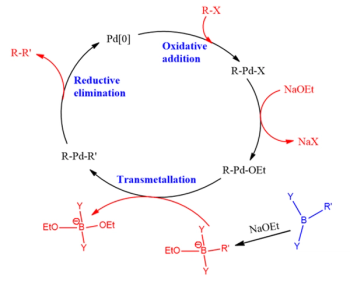
Wednesday Morning Session: Innovative Separations Approaches Coupled to Mass Spectrometry
This Wednesday morning oral session on the subject of innovative separation approaches coupled to mass spectrometry, will be held 8:30-10:30 am in Room L100. The session, chaired and presided over by Brian H. Clowers of Washington State University, includes six talks addressing a variety of approaches and applications.
This Wednesday morning oral session on the subject of innovative separation approaches coupled to mass spectrometry, will be held 8:30-10:30 am in Room L100. The session, chaired and presided over by Brian H. Clowers of Washington State University, includes six talks addressing a variety of approaches and applications.
At 8:30, Yehia Ibrahim of Pacific Northwest National Laboratory will discuss advancing ion mobility separations to the next level, and recent developments in multilevel structures for lossless ion manipulations (SLIM), a platform for performing a variety of ion manipulations. SLIM can enable unprecedentedly high ion mobility resolution by repeatedly passing ions over the same serpentine path. However, the resolution is ultimately constrained by the path length and achieved for an increasingly narrow range of mobilities as the number of passes increases due to ion lapping. To address this issue, Ibrahim and associates have developed a multilevel SLIM system that greatly extends the path length achievable allowing for ultrahigh resolution over a much broad range of mobilities.
Next, at 8:50am, J. Will Thompson of 908 Devices presents “Pushing the Boundaries of Speed and Sensitivity in Proteomics: Coupling SPE-Enabled Microfluidic Capillary Electrophoresis with Ultrafast Tandem Mass Spectrometry.” Historically, microchip capillary electrophoresis–mass spectrometry (CE-MS) has had limited impact in proteomics because of sample loading limitations (poor concentration sensitivity) compared to liquid chromatography–mass spectrometry (LC–MS), which can accommodate larger sample volumes. To overcome this limitation, Thompson and associates have engineered a 1-mm solid-phase extractiion (SPE) bed within the chip geometry, allowing 100-fold improvements in concentration sensitivity limit for CE-MS.
Xiaofeng Xie of Brigham Young University will give a talk at 9:10 am on how accelerated liquid chromatography gradient generation with constant-pressure elution improves sensitivity and throughput for single-cell proteomics. MS-based single-cell proteomics has the potential to transform biomedical research by shedding light on biological processes at the cellular level. However, the dramatically reduced sample input and increased number of samples place challenges on MS sensitivity and throughput. Xie introduces a novel multicolumn LC system based on accelerated gradient generation and constant-pressure isocratic elution as a straightforward means of achieving LC–MS duty cycles approaching 100% even at ultralow flow rates.
Repurposing derivatization reactions as targeted molecular manipulations for isomer resolution using ion mobility–mass spectrometry will be addressed next at 9:30 am by Christopher Chouinard of the Florida Institute of Technology. Although derivatization is a common strategy in mass spectrometry–based analyses, with benefits including improved ionization efficiency, increased stability, chromatographic retention shifts, and characteristic fragmentation patterns, the structural changes affected by such reactions reveal the potential for significant improvements in isomeric resolution using ion mobility. Chouinard and his group have recently demonstrated structurally selective reactions involving hydroxyl, carbonyl, and alkene chemistry within several classes of steroids. During this presentation, he will discuss targeted molecular manipulations capable of resolving isomer groups with as many as six different compounds.
Newsletter
Join the global community of analytical scientists who trust LCGC for insights on the latest techniques, trends, and expert solutions in chromatography.




